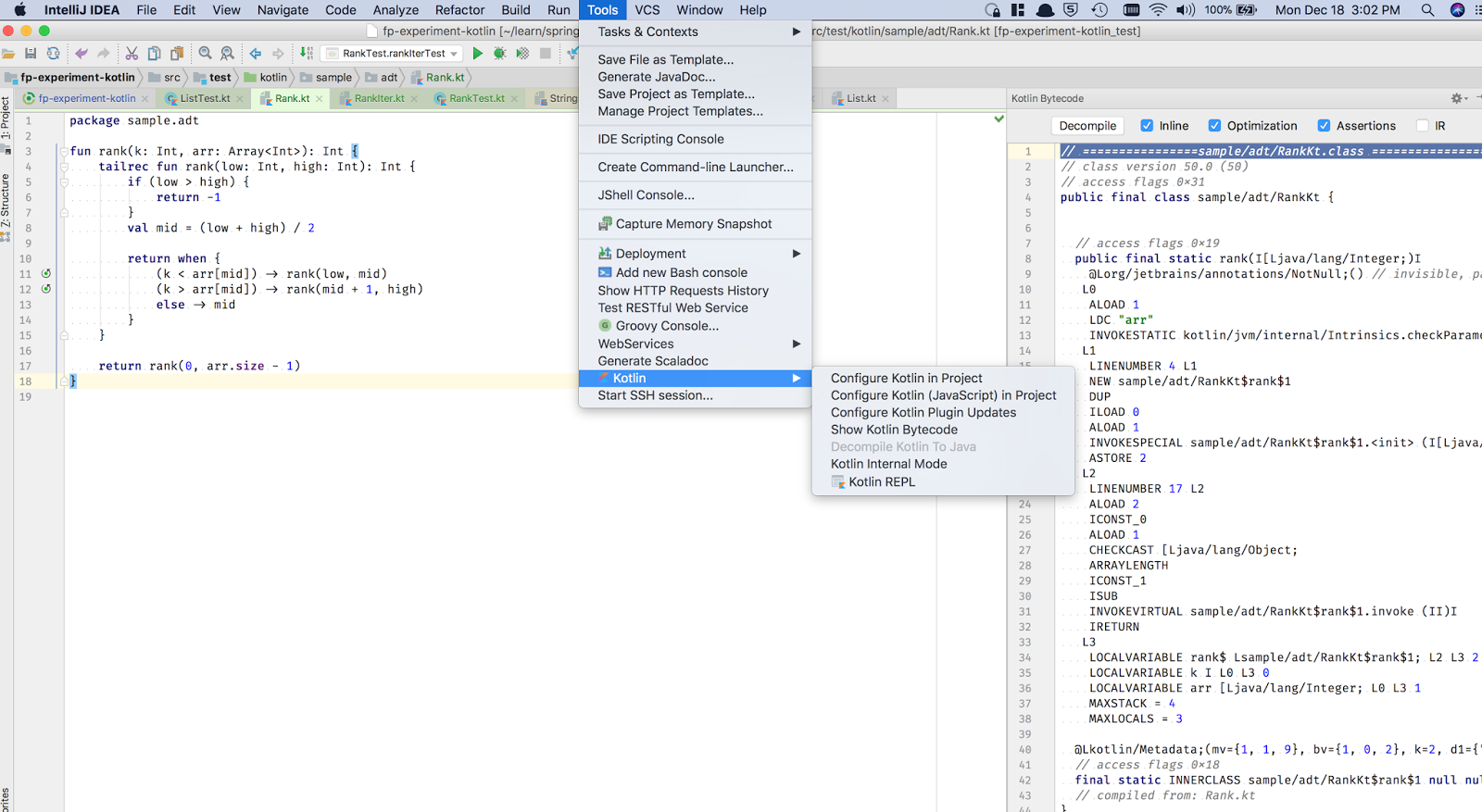The Kotlin compiler optimizes tail recursive calls — with a few catches. Consider a ranking function to search for the index of an element in a sorted array, implemented the following way using tail recursion (and a test for it):
fun rank(k: Int, arr: Array<Int>): Int {
tailrec fun rank(low: Int, high: Int): Int {
if (low > high) {
return -1
}
val mid = (low + high) / 2
return when {
(k < arr[mid]) -> rank(low, mid)
(k > arr[mid]) -> rank(mid + 1, high)
else -> mid
}
}
return rank(0, arr.size - 1)
}
@Test
fun rankTest() {
val array = arrayOf(2, 4, 6, 9, 10, 11, 16, 17, 19, 20, 25)
assertEquals(-1, rank(100, array))
assertEquals(0, rank(2, array))
assertEquals(2, rank(6, array))
assertEquals(5, rank(11, array))
assertEquals(10, rank(25, array))
}IntelliJ provides an awesome feature to show the bytecode of any Kotlin code, along the lines of the following screenshot:

A Kotlin equivalent of the type of bytecode that the Kotlin compiler generates is the following:
fun rankIter(k: Int, arr: Array<Int>): Int {
fun rankIter(low: Int, high: Int): Int {
var lo = low
var hi = high
while (lo <= hi) {
val mid = (lo + hi)/2
if (k < arr[mid]) {
hi = mid
} else if (k > arr[mid]){
lo = mid + 1
} else {
return mid
}
}
return -1
}
return rankIter(0, arr.size - 1)
}The tail calls have been translated to a simple loop. There are a few catches that I could see, though:
- The compiler has to be explicitly told which calls are tail-recursive using the "tailrec" modifier
- Adding the tailrec modifier to a non-tail-recursive function does not generate compiler errors, though a warning does appear during the compilation step.